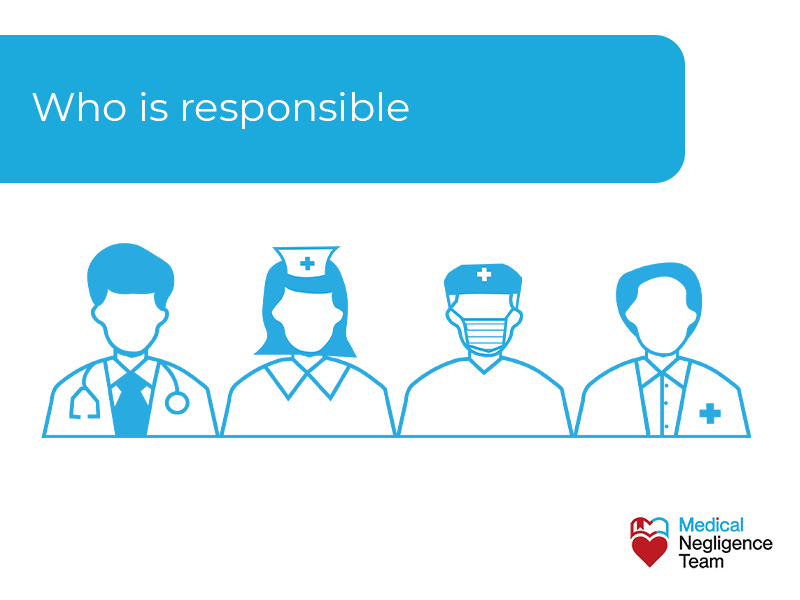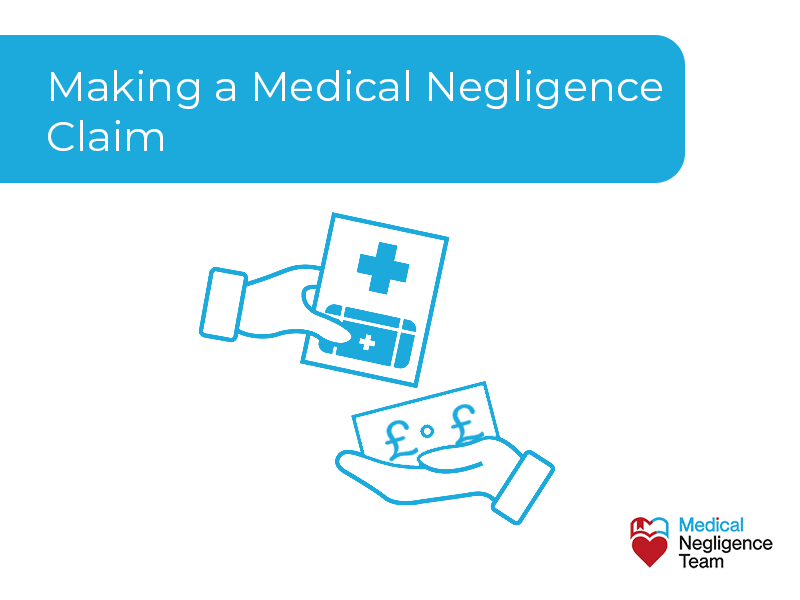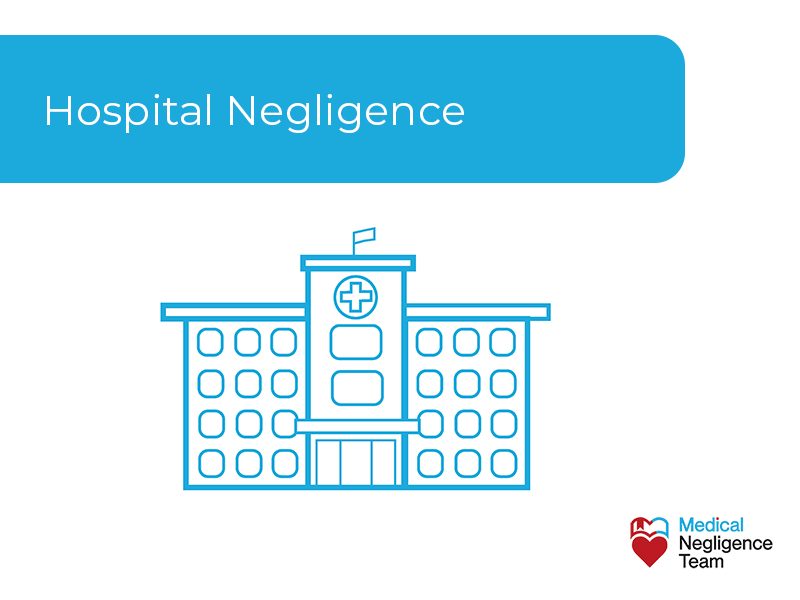Meningitis negligence delays treatment and is life-threatening. Meningitis damages the brain, the limbs and hearing. It is a condition that moves fast and prompt action is needed to stop it.
Not diagnosing meningitis or treating it with the wrong medications is serious medical negligence. Every doctor, nurse and medical professional is trained to spot and treat meningitis. Delays and mistakes in handling meningitis can be fatal.
Meningitis usually affects children, but it can also occur in adults. Ignoring the symptoms or not treating meningitis with the urgency it requires is serious medical negligence.
A medical negligence solicitor will make your compensation claim for meningitis negligence and get you the money you and your child deserve.

Table of content
What is meningitis?
Meningitis is a swelling of the protective membranes around the brain and the spine due to infection. The swelling usually happens when a bacterial infection gets into the fluid.
It can also happen after an injury, certain types of cancer and other infections.
When meningitis spreads unchecked, the swelling around the brain and the spinal cord causes severe pain and often results in death.
Brain damage and amputation of the limbs can also result from delays in diagnosing meningitis.
A doctor should be fully aware of the types of meningitis and make a quick diagnosis to put you or your child on the correct course of antibiotics.

What are the common types of meningitis?
The common types of meningitis are:
Each type of meningitis has similar symptoms but different causes and treatments.

Bacterial meningitis
Bacterial meningitis is thought to be the most severe form of the disease. It is caused by bacteria getting into and infecting the fluid around the brain and spine.
Symptoms include high temperatures, vomiting, drowsiness and swelling of the head.
Parasitic meningitis
Parasitic meningitis is caused by a parasite getting into the brain. It is far less common than bacterial and viral meningitis, but doctors should be aware of the possibility of parasitic meningitis
The symptoms of parasitic meningitis are similar to other types of the disease and include a stiff neck, confusion and vomiting.
Non-infectious meningitis
Non-infectious meningitis results from certain forms of cancer, head injury, Lupus and some drugs. Doctors can treat it once diagnosed, but if left untreated non-infectious meningitis can be as dangerous as the other types.
The symptoms of non-infectious meningitis are similar to other types but can take longer to develop.
What is meningitis negligence?
Meningitis negligence is when a medical professional misses the signs of meningitis or fails to treat it correctly.
It is medical care that no other doctor working in a professional manner would provide.
Any doctor, nurse or hospital consultant should provide care at an acceptable standard and treat every patient correctly. To not do so, to provide below-standard care, is medical negligence, and you, the patient, will suffer as a result.
As meningitis often affects children, doctors should be very aware of the possibility of meningitis when treating them and young adults.
Meningitis negligence has serious outcomes, and the effects can be tragic for the patient and the family.
What are the effects of meningitis negligence?
The effects of meningitis negligence are severe forms of the illness, delays in recovery and many other catastrophic situations for the family to face.
The effects can be life-changing when you or your loved one suffers meningitis negligence.
Effects of meningitis negligence are:

If you experience any of the effects of meningitis negligence, it can be difficult to understand how it happened and, in many cases, how the meningitis spread so quickly.
Understanding how meningitis negligence occurs and who is responsible may help you form your medical negligence claim for compensation.
How does meningitis negligence happen?
Meningitis negligence happens when a medical professional does not do their job correctly. It is meningitis negligence when you, your child, or a loved one are not treated correctly when showing symptoms of meningitis.
When the doctor, nurse or A&E consultant provides care below professional standards and the signs of meningitis are missed, it is medical negligence.
Instead of getting prompt treatment, your meningitis worsens, and your life is in danger.
There are different types of meningitis negligence that can happen. If you suffer one or more, then you may have a meningitis compensation claim for negligence.
What are the different types of meningitis negligence?
The different types of meningitis negligence range from misdiagnosis to receiving the wrong treatment.
Different types of meningitis negligence are:
If you or a loved one experiences meningitis negligence and suffer from its effects, you will have a meningitis claim for negligence.
A doctor missing the signs of meningitis claim
A doctor missing the signs of meningitis is one of the most common forms of meningitis negligence. Time is critical with meningitis, and the doctor missing the symptoms of meningitis causes them to lose time in tackling the infection.
If you or your baby presents at the GP with a headache, high temperature, and stiff or sore neck, meningitis must be top of the doctor’s concerns. For them not to notice the signs of meningitis and send you home is meningitis negligence.
When you go to the A&E with similar symptoms but they miss the obvious signs of meningitis and do not refer you for further testing, it is meningitis negligence.
A misdiagnosis of meningitis claims
A misdiagnosis of meningitis is when the doctor or hospital consultant diagnoses your symptoms of meningitis as another infection. They may think you have a bad cold or the beginning of winter flu and send you home.
Misdiagnosis of meningitis means missing valuable time in getting the urgently needed treatment. The doctor sends you home without doing all the checks and ordering tests for meningitis, but you soon develop full symptoms and become seriously ill.
The consequences of a misdiagnosis of meningitis can be that you suffer all the effects of meningitis negligence, from prolonged stays in hospital to organ damage and even, in some cases, death.
Delays in meningitis treatment claims
Delays in treatment for meningitis cause a loss of valuable time fighting the infection and making everything worse. Instead of receiving the urgent care needed for treating meningitis, you experience delays and below-standard care.
Any delay will only worsen the symptoms. When meningitis is suspected or diagnosed, the patient should get immediate IV antibiotics and round-the-clock care.
Being left on a trolley in the A&E department is a delay in treatment. Not ordering IV antibiotics and further tests is a delay in treatment for meningitis and is obvious meningitis negligence.
Receiving the wrong meningitis treatment claim
Receiving the wrong meningitis treatment is when the hospital staff do not administer the correct antibiotic for meningitis. They may give a low-grade antibiotic when the strongest grade is needed to fight meningitis.
It can also be when staff give an oral antibiotic when IV administration is the standard for tackling meningitis.
Patients with meningitis need full-time observation. Meningitis can develop quickly, and failing to intervene can be fatal.
Having a diagnosis of meningitis but then receiving below-standard care is clear meningitis negligence.
Failing to treat Group B Streptococcus in pregnancy claim
Failing to treat Group B Streptococcus in pregnancy can lead to a newborn baby developing meningitis.
Normally, a benign bacteria, Group B Streptococcus, GBS, can be very dangerous if it spreads to a newly born baby, particularly a premature one.
GBS can make the child very ill, and meningitis is one of the complications. If a pregnant woman shows signs of GBS, she should be treated with IV antibiotics.
Failing to test for and treat GBS in a pregnant woman can be a very serious type of meningitis negligence.
Who is responsible for meningitis negligence?
A medical professional is responsible for meningitis negligence. The doctor, nurse, paramedic or hospital consultant who does not diagnose or treat your meningitis is responsible for what happens to you.
Meningitis negligence is when the medical professional provides you with medical treatment below acceptable standards. It is medical treatment that no other medical professional acting responsibly would provide.
The consequences of meningitis are serious.
When you or a loved one suffers the consequences of medical negligence, you will have a meningitis negligence compensation claim.

How much can I claim for meningitis negligence?
You can claim over £300,000 for meningitis negligence where there is severe brain damage plus the costs of future care.
Meningitis claims for negligence when there is amputation of a limb can start around six figures plus future care costs. Deafness is a common effect of meningitis negligence, and awards range from £10,000 to over £100,000 for total hearing loss claims.
There is not one fixed amount awarded in meningitis negligence cases. As in all medical negligence claims, each case is dealt with on its merits and how much you have suffered due to undiagnosed meningitis symptoms.
A No Win No Fee medical negligence solicitor will be the only one who can advise you on a meningitis negligence claim. They will know from experience what your case may be worth and how to go about a successful claim
Your No Win No Fee medical negligence solicitor will handle your meningitis negligence claim and get you compensation for all damages incurred.

What can you claim for when suing for meningitis negligence?
You can claim compensation for any damages that occurred, when suing for meningitis negligence.
There are two types of compensation damages due when suing for any type of medical negligence: General damages and Special damages.

General damages
General damages are when you sue for the pain, suffering and the loss of amenity, PSLA, you have experienced due to negligence.
Special damages
Special damages include loss of earnings, future care costs, and out-of-pocket expenses.
Be sure to keep payslips, receipts and proof of any losses you experience as a result of the medical negligence.
You deserve compensation to cover all losses, including loss of life, medical costs and any long-term care needs.
When you or a loved one suffers from the effects of meningitis negligence, you make a claim for compensation.
Your No Win No Fee solicitor will guide you through the steps in making a meningitis negligence claim.
What are the steps involved in making a meningitis negligence claim?
The steps involved in making a claim for meningitis negligence go from seeking medical advice to issuing court proceedings. The steps are a part of any successful compensation case, and settlement can happen at any stage in the process.
When you follow the steps correctly and get all the facts and figures together, your medical negligence solicitor will do the rest.

Step 1: Seek medical advice
Seek medical advice on the injuries you have suffered or are suffering with immediately you realise you experienced meningitis negligence.
Step 2: Contact a specialist medical negligence solicitor
Contact a specialist medical negligence solicitor who operates on a No Win No Fee basis and tell them what went wrong. The right solicitor will look at your case, see where the problem lies, and advise if you suffered meningitis negligence.
The Medical Negligence Team also have a 100% Compensation Guarantee scheme, where you get all the money awarded in a negligence claim.
You are the one who suffered medical negligence, and you should get all the money due for the suffering.
Step 3: Your medical negligence solicitor obtains your medical records
Your medical negligence solicitor obtains your medical records with your permission. By reading your records, they will confirm if they think you have a valid meningitis negligence case.
The medical negligence team will know from reading your medical records it the case will result in meningitis negligence compensation being paid.
Step 4: The medical negligence solicitor sending a letter of claim to the negligent party
The medical negligence solicitor sending a letter of claim to the negligent party is the next step. The letter will ask them to admit meningitis negligence in what is known as ‘sending a letter of claim.’
When the negligent party receives the letter of claim, it has up to four months to provide a written response.
Step 5: Getting a response from the negligent party’s insurer
Getting a response from the negligent party’s insurer will move your compensation claim closer to a conclusion.
The insurer will either admit the medical negligence or say they intend to defend the case. Deciding to defend the case is known as ‘deny liability’ in legal terms.
If they admit liability, your meningitis negligence claim can be valued.
The two parties will meet to decide on your meningitis negligence compensation payment.
Your solicitor will negotiate with the negligent party and use their experience to get the compensation you deserve.
Step 6: Issuing court proceedings
Issuing court proceedings is the next step if they deny liability in your meningitis negligence case. Going to court happens, too, when they are not prepared to pay a fair amount for the injuries you have suffered.
Your medical negligence solicitor issues the court proceedings.
Remember that less than 1% of medical negligence cases end up in court, and very few of those cases ever make it to the courtroom.
Our Process
Our team members have a higher career win rate with a 75% success rate on NHS letters of claim, compared to an industry average of 54.5%.
Enquiry
The first step is to get in touch and tell us what went wrong. It’s free and easy. Call our 24-hour helpline: 0800 246 1122 or request a callback here.
Medical Evaluation
Once you have spoken with our team we’ll let you know how we can help. Typically the next step is to obtain your medical records for us to review.
Legal Letter
Once all your medical records have been received they will be reviewed by a medically & legally qualified member of our team. If there is evidence of negligence we will send a letter of claim to the negligent party outlining your compensation claim.
Using a No Win No Fee solicitor
Using a No Win No Fee solicitor is the only way to a successful meningitis negligence claim. Your No Win No Fee medical negligence solicitor will not charge you for a claim you do not win.
Always have a fee agreement in place before engaging a medical negligence solicitor. If they start talking of a ‘win fee’ or a ‘success fee,’ you should walk away. The negligent party insurers should pay all fees.
The medical negligence solicitor should also operate a 100% Compensation Guarantee scheme. When you win the case, all the money awarded should go to you, not the solicitor.
You are the one who suffered meningitis negligence, and you deserve the compensation to get your life back to normal.
How long do I have to make a claim for meningitis negligence?
You have three years to make a claim for meningitis negligence. All medical negligence claims are subject to limitation periods.
For example, in England and Wales, medical negligence claims must generally be brought, court proceedings issued within three years of the injury, or three years of knowledge of the facts giving rise to the claim.
If someone has passed away, it is the date of death if the limitation period has not expired at the date of death.
Children not under a disability typically have until they reach 21 to start a meningitis negligence claim or court proceedings.
Persons under a disability, who lack capacity, are not subject to any limitation period.
Can I make a medical negligence claim against the NHS?
Yes, you can make a medical negligence claim against the NHS. Suing the NHS for negligence is not unusual. People sue the NHS for compensation for medical negligence and receive the money they deserve for the negligent treatment.
Each year there are between 8,000 and 10,000 successful medical negligence claims against the NHS. Suing the NHS for medical negligence can make some people feel uncomfortable.
Amounts in compensation claims awarded against the NHS range from £1000 to over £10 million. The amount you receive covers minor injuries such as scarring to serious life-threatening negligence, which leaves you with long-term care needs.
We trust in and use the NHS daily and do not expect negligence. It happens, though, and the NHS has a dedicated team to handle medical negligence compensation claims, called NHS resolution.
NHS Resolution has a responsibility to treat patients who seek compensation fairly. Patients pay for the NHS through their taxes, and for that they deserve respect and the best medical treatment.

Contact The Medical Negligence Team
Contact the Medical Negligence Team today to discuss your meningitis negligence claim for compensation. We have both the legal and medical experts to guide you along the steps to a successful medical negligence claim for compensation.
At the Medical Negligence Team, we fight every compensation claim on a No Win No Fee basis. You will not be out of pocket for an unsuccessful claim.
We have a very high success rate and a reputation for a speedy and successful resolution to all medical negligence cases.
Our 100% Compensation Guarantee puts all the money you win into your pocket. You or your loved one suffered meningitis negligence, and you deserve every penny of the compensation.
Contact us at the Medical Negligence Team for all your medical negligence needs.


